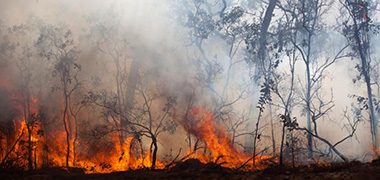
Courses for beginners
There are 11 courses available in Brisbane Queensland for beginner learners with no prior experience or qualifications.
Professional Certificate of Competency in Carbon Capture
Online
3 months
$1,581
- There are no mandated entry requirements.
 Engineering Institute of Technology
Engineering Institute of Technology
Professional Certificate of Competency in Fundamentals of Electric Vehicles
Online
3 months
$1,581
- There are no mandated entry requirements.
 Engineering Institute of Technology
Engineering Institute of Technology
Professional Certificate of Competency in Green Building: Carbon Management in Infrastructure
Online
3 months
$1,581
- There are no mandated entry requirements.
 Engineering Institute of Technology
Engineering Institute of Technology
AHC21024
Certificate II in Conservation and Ecosystem Management
Blended, On Campus, Online, Traineeship
8 - 21 months
$0 - $10,190
- There are no mandated entry requirements.





AHC10124
Certificate I in Conservation and Ecosystem Management
On Campus
6 months
$1,350
- There are no mandated entry requirements.
 Construction Skills Training Centre
Construction Skills Training Centre
Courses for experienced learners
There are 44 courses available in Brisbane Queensland for experienced learners with prior experience or qualifications.
11130NAT
Certificate IV in Environmentally Sustainable Management
Online
12 months
Unavailable
- There are no mandated entry requirements.
 Australian College of Business Intelligence
Australian College of Business Intelligence
CPP40919
Certificate IV in Waste Management
Blended, On Campus
12 months
Unavailable
- There are no mandated entry requirements.
 Academy Green Learning
Academy Green Learning
52925WA
Graduate Certificate in Water Resources Engineering
Online
6 months
$5,634
- There are no mandated entry requirements.
 Engineering Institute of Technology
Engineering Institute of Technology
CPP41119
Certificate IV in Home Energy Efficiency and Sustainability
Online
12 months
$4,530 - $4,585
- There are no mandated entry requirements.


AHC51120
Diploma of Conservation and Ecosystem Management
Blended, On Campus, Online
12 - 24 months
$0 - $6,000
- There are no mandated entry requirements.




Further reading


Most popular environment and sustainability courses
12th June 2022
